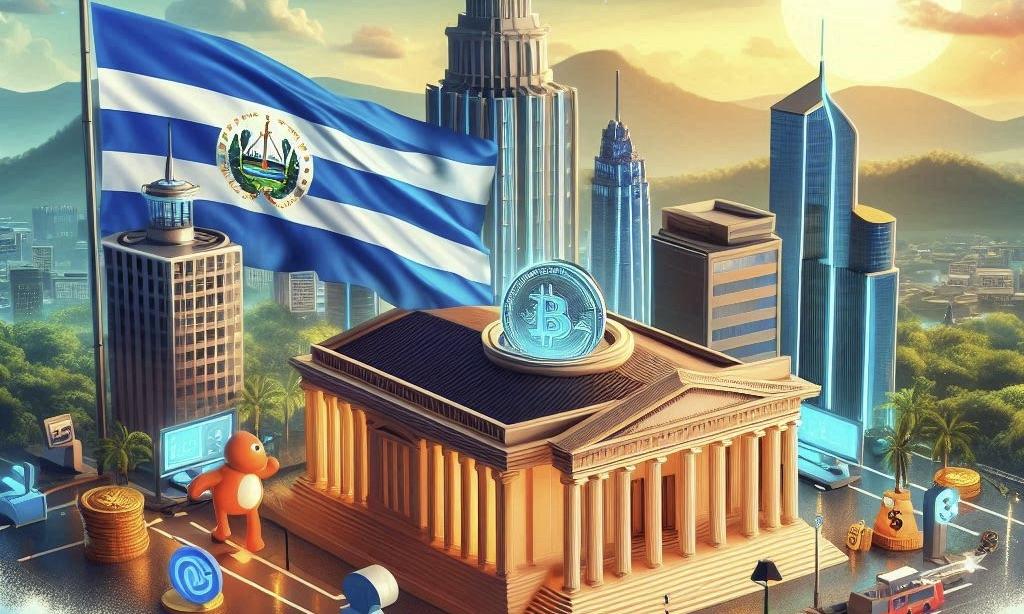El Salvador's President Nayib Bukele has proposed establishing a Bank of Private Investment for Crypto to offer comprehensive financial services for Bitcoin and dollar investors. This initiative, if approved, could transform the investment landscape and strengthen the country's economy.
El Salvador Plans Bank of Private Investment to Boost Bitcoin and Dollar Financial Services
According to Coinpedia, President Nayib Bukele of El Salvador, a well-known Bitcoin proponent, is championing the establishment of a "Bank of Private Investment" to cater to Bitcoin (BTC) and other foreign investors. If approved, this banking initiative could revolutionize the investment landscape, offering crypto and dollar investors a more comprehensive array of financial services and fewer restrictions, fostering a more vibrant and dynamic economy.
Milena Mayorga, the Salvadoran Ambassador to the United States, announced the proposal on X on June 14, emphasizing the intention to establish the Bank for Private Investment (BPI)—the BPI endeavors to offer a wide range of financing alternatives in Bitcoin and U.S. dollars.
Max Keiser, a senior Bitcoin advisor to Bukele, also supported Ark Invest CEO Cathie Wood's prediction that El Salvador's GDP could increase tenfold in the next five years. This announcement follows Bukele's inauguration for an additional five-year term, preceded by his decisive victory in February.
Proposed Bank of Private Investment in El Salvador to Operate with Flexible Regulations and Broader Financial Options
As reported by El Mundo (via The Crypto Times), the proposed BPI will be subject to more stringent regulations than traditional banks. These include fewer restrictions on engaging with finance companies or overseas institutions affiliated with shareholders. Additionally, loan restrictions will be eradicated, providing greater flexibility in the provision of credit and the assumption of risks.
To establish a BPI, a minimum share capital of $50 million and a minimum of two shareholders, who may be expatriates, are necessary. The new institutions can operate in any legal tender, including the U.S. Dollar and Bitcoin, and they can apply for approval to become digital asset and Bitcoin service providers.
El Salvador's Minister of Economy, María Luisa Hayem, under the guidance of Bukele, presented the Technology, Tourism, and Investment Commission with the reform. However, it has not yet been authorized. The legislators have not engaged in discussions with officials regarding the project's objectives or submitted it for a vote in the Commission, indicating the potential regulatory and political hurdles that must be overcome for the proposal to be approved.
If approved, these private investment banks have the potential to considerably enhance El Salvador's economy and further solidify its status as a Bitcoin-friendly nation.
Photo: Microsoft Bing



 Nvidia Confirms Major OpenAI Investment Amid AI Funding Race
Nvidia Confirms Major OpenAI Investment Amid AI Funding Race  Alphabet’s Massive AI Spending Surge Signals Confidence in Google’s Growth Engine
Alphabet’s Massive AI Spending Surge Signals Confidence in Google’s Growth Engine  SpaceX Pivots Toward Moon City as Musk Reframes Long-Term Space Vision
SpaceX Pivots Toward Moon City as Musk Reframes Long-Term Space Vision  SpaceX Pushes for Early Stock Index Inclusion Ahead of Potential Record-Breaking IPO
SpaceX Pushes for Early Stock Index Inclusion Ahead of Potential Record-Breaking IPO  AMD Shares Slide Despite Earnings Beat as Cautious Revenue Outlook Weighs on Stock
AMD Shares Slide Despite Earnings Beat as Cautious Revenue Outlook Weighs on Stock  Anthropic Eyes $350 Billion Valuation as AI Funding and Share Sale Accelerate
Anthropic Eyes $350 Billion Valuation as AI Funding and Share Sale Accelerate  FxWirePro- Major Crypto levels and bias summary
FxWirePro- Major Crypto levels and bias summary 































